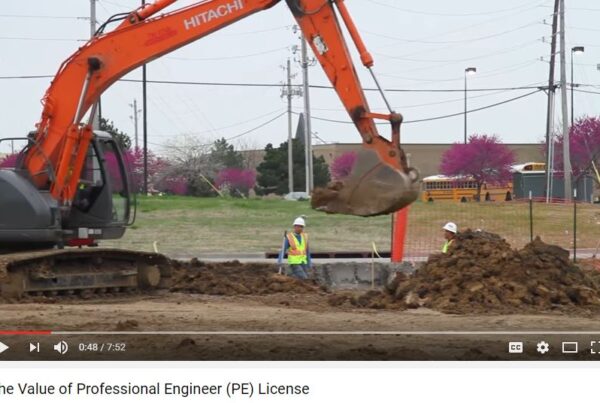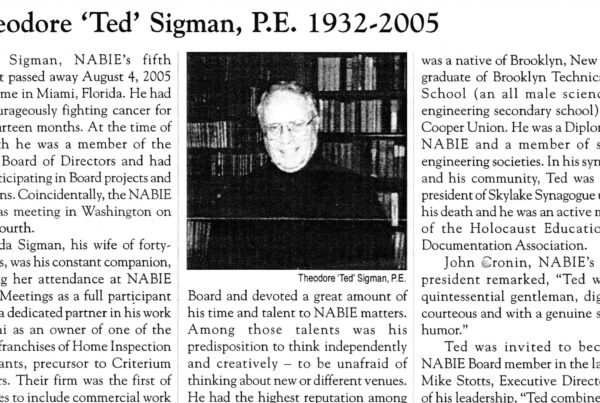One issue that almost always surfaces around the time of NABIE’s annual conference involves continuing education credits. Depending on the state or states in which you are licensed as a professional engineer, the validity of continuing education credits can be called into question. New York State (NYS) has a very rigorous system for vetting earned credits. The credits must originate from providers who have appropriate NYS approval before they can be accepted for license renewal.
Gaining approval is not only complicated, but it is costly. NABIE is not positioned either staff-wise or monetarily to address the specific continuing education validation requirements for every state, which means that some members have had difficulty gaining acceptance of the credits awarded from our annual meeting.
Last year’s meeting in Memphis found NABIE embarking on a path to gain NYS approval for the Ted Sigman Lecture. The full lecture had to be submitted by the presenter – in completed form – substantially prior to the meeting. After several exchanges by the NYS reviewer (a PE himself) with the presenter (also a PE) and including NABIE’s executive director, the necessary revisions were agreed on and eventually the program was approved for NYS continuing education credit. We should point out that the Sigman Lecturer that year largely volunteered his services, so multiple exchanges with a “critic” of the material were certainly not anticipated, and the additional time of the presenter to answer questions and revise material was uncompensated.
On the other hand, we have generally assumed that if New York was satisfied, it is likely we could leverage that approval for other states if the need arose. While that remains to be seen if we again embark on specific NYS approval, some states also have continuing education requirement for home inspectors. As some NABIE members may have dual licensing as both professional engineers and home inspectors, the need to satisfy home inspector licensing continuing education needs is a parallel requirement. New Jersey has such requirements and they are quite specific about materials they need from presenters in order to validate continuing education credits. This too becomes complicated and can cause presenters to incur additional time simply to assemble information to satisfy one state’s needs.
Unfortunately until such time as continuing education requirements are standardized across the country for professional engineers, it is unlikely that NABIE can be positioned to custom tailor presentations to match each state’s needs. However, there are opportunities for NABIE members to gain credits.
One venue is simply by maintaining membership in NSPE. As an affinity group of NSPE, your membership in NABIE must go hand in hand with maintaining your status in NSPE. NSPE membership now includes 15 free professional development hours that you can conveniently earn through online seminars. At the end of each seminar, a quiz will be available for those who need it to meet their state’s continuing education requirements. Check out NSPE’s website at www.nspe.org for further information.
NABIE is also pursuing a possible similar arrangement with a well known engineering continuing education provider that may become available in the future. If successful, there would be no cost to NABIE members and no change in our current dues structure. We’ll continue to investigate this possibility more and perhaps can come back with some good news later in the year.
*This article had been posted in the Spring 2011 edition of The Examiner.


